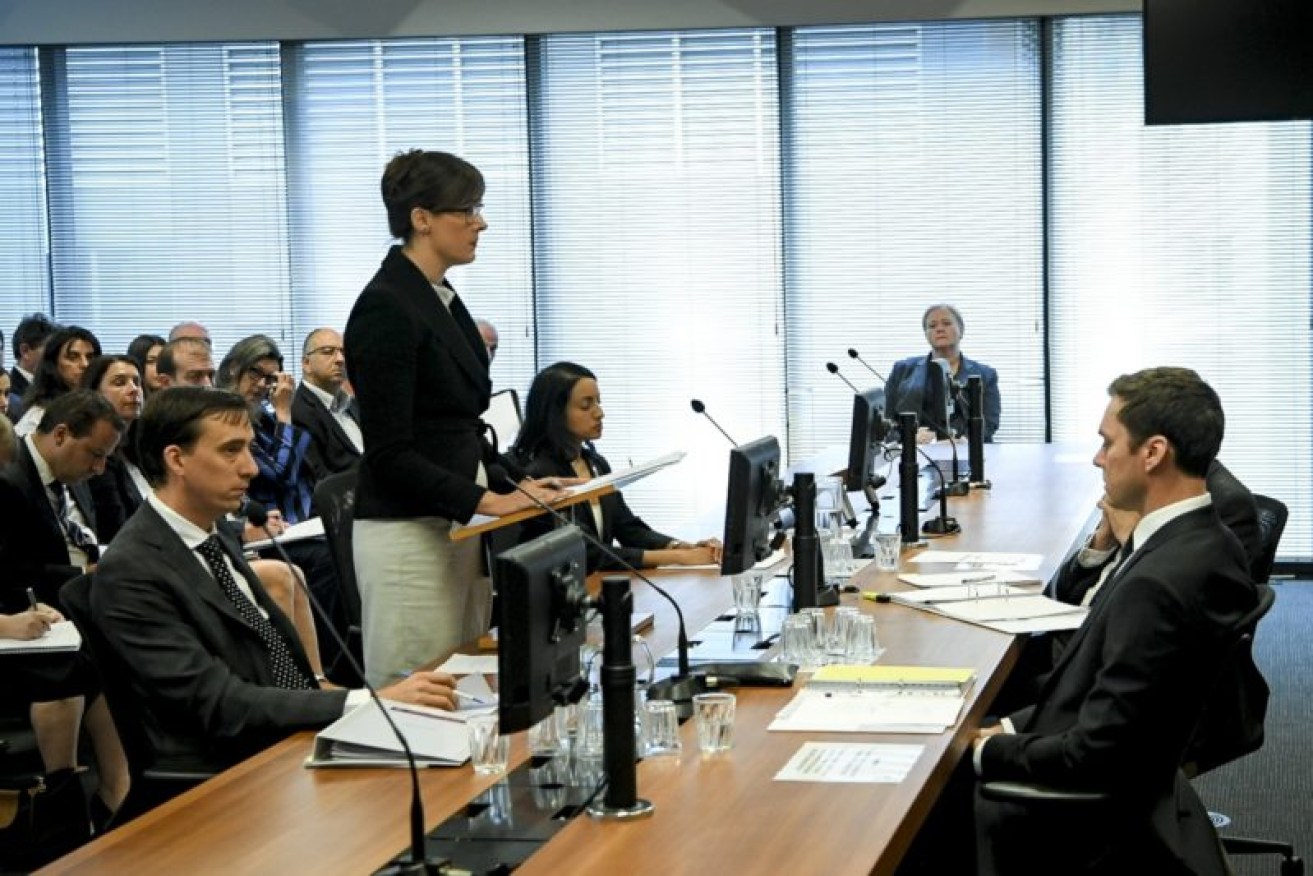AMP misled regulator 10 times over illegal advisory fees


AMP kicked off the second round of royal commission hearings in Melbourne on Monday. Photo:AAP
AMP misled the corporate watchdog at least 10 times by denying it charged clients fees for financial advice they did not receive, the banking royal commission has heard.
The financial services giant continued this practice for six years despite being told by the regulator to stop.
AMP continued to take the advisory fees on investment accounts not receiving advice despite its own advice that its actions were illegal and not compliant with financial services legislation.
AMP and the big four banks are refunding a combined $216 million to more than 300,000 customers who were charged fees for no service.
Appearing at a commission hearing in Melbourne on Monday, AMP executive Jack Regan said the company knew from as early as 2009 that it was charging fees to clients whose funds had been placed into an unadvised pool after advisers had left the business, but took no action to rectify the situation despite concerns of a number of internal staff and external legal advisors.
The issue troubled some AMP staffers and as early as 2011 internal emails identified that the issue needed redress. At that point the AMP policy was to keep charging clients fees for up to three months after an adviser had left and they were receiving no advice – in contravention of the law.
In response to an email, an AMP executive described the decision to charge fees as “a business rule” and did not breach financial services legislation.
On the basis of that and similar opinions AMP decided not to report to ASIC that it was breaching the law. That was despite legal advisers telling AMP that “the rule is statutory”, not simply a business convention.
Mr Regan was challenged by counsel assisting, Michael Hodge QC, on the legality of the situation.
“You don’t need legal advice to know that you can’t charge somebody for services that you are not providing, do you?” he asked.
“Yes, I’d agree with that,” Mr Regan replied.
Even when AMP decided it could no longer maintain charging fees for non-existent advice, internal documents continued to show it was still happening.
“As advised, there are occasions when the processes for cancelling ongoing fees were not correctly followed and fees have continued to be deducted,” an internal document, tendered as evidence, read.
When AMP did report to ASIC that it had been charging illegally it explained the situation as a failure of internal processes in a letter to the regulator. But Mr Hodge took exception to that.
“The processes didn’t fail … There was a deliberate decision made by AMP to retain fees on some of these clients,” he said.
“AMP didn’t tell ASIC they had made this deliberate decision?” Mr Hodge asked.
“That’s correct,” Mr Regan replied.
Even though AMP had known about it for a number of years when the report to ASIC was made in August 2015, it told the regulator: “The issue was initially identified … about a month ago.”
“That statement is completely false,” Mr Hodge said.
“Yes, I think it is,” Mr Regan replied.
In further correspondence with ASIC in August 2015, AMP quoted a template letter it said had been sent to clients saying that no further advisory fees would be charged as it could no longer provide those services.
Mr Hodge said the letters implied that up to that point the relevant services had been provided when this was not in fact the case.
“Now had that letter been sent to all clients then that would have been a misleading statement to the clients?” Mr Hodge said.
“Yes,” Mr Regan said.
“But in fact even though ASIC was told those letters were sent to clients, in fact they weren’t sent to [all] the clients,” Mr Hodge said.
“I understand that to be the case.” Mr Regan replied.
Mr Regan will continue giving evidence on Tuesday.








